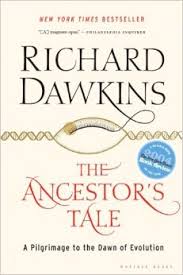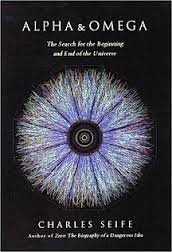With the last line of the story, Asimov drops the mic and walks off the stage. The unexpected ending causes the reader to examine the concepts of God and Creation from a different perspective. Asimov’s predictions about the future, forecasted through his telling of human evolution towards intergalactic colonists and, eventually, universally transcendent beings, also reveal some of Asimov’s own feelings about the origins of the universe.
Despite the atheistic tendencies of science fiction and Asimov’s writings, this story provides an opportunity to examine which system of thought you want to pursue. Asimov’s use of Genesis 1:3 (And God said, “Let there be light,” and there was light) forces a direct comparison between God and AC. Asimov crafted AC to be a God created by man. Both are omnipotent and omnipresent; Jeremiah 23:24 says that the Lord declares “Do I not fill heaven and Earth?” and Asimov writes, “The consciousness of AC encompassed all of what had once been a Universe.” Asimov fashions AC to be an Intelligent Designer brooding over chaos to create the order of the world just as God created the Universe. AC, just like God, cannot be conceived of by the human mind in all of its complexity and is independent from matter and energy (Chinnachamy). The only, but extremely significant, difference between the two is this: AC was a creation of man who recreated man, while in the traditional paradigm, God created man.
The AC paradox brings to mind that of the chicken and the egg: which came first? Asimov creates an infinitely looping cycle of Universe and mankind. The Universe cannot be created without AC, which cannot be created without man, which cannot exist if AC has not created the Universe. An infinite number of Universes existed before the current one and an infinite number will exist after this one, according to Asimov’s idea. This is a materialist approach to the Universe; the AC, which had long since become so complicated that no human mind could understand how it works, was able to recreate the Universe since it had discovered how to reverse entropy. However, this process was strictly physical; the story mentions nothing of spirituality or other tenets of idealism.
In the following video, Dr. Robert Jastrow, founding director of the NASA Goddard Institute for Space Studies, presents a discussion of the origin of the Universe, which attempts to reconcile both God and the theory of the Big Bang. Watch it and make note of how this explanation of the Universe’s origin relates to the account in Asimov’s narrative.
It is up to the careful Thinker to come to a conclusion. Which way of thinking is more likely to produce a positive and well-lived life? Is the materialist view Asimov presents rationally inclined to lead to greatness, or is the idealist view of the Bible more beneficial? Another question to ask yourself is this: who do you fashion your God to be?







